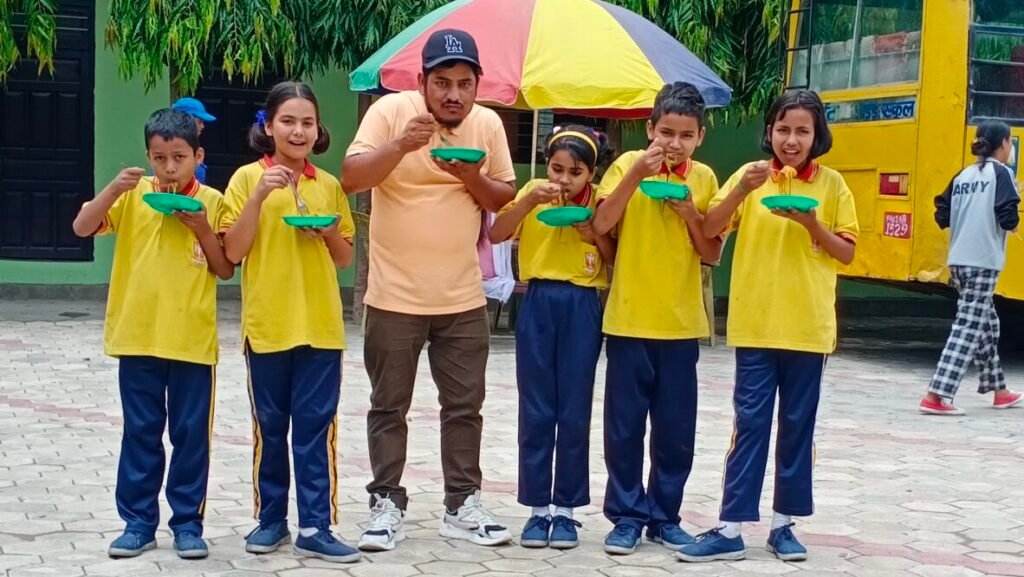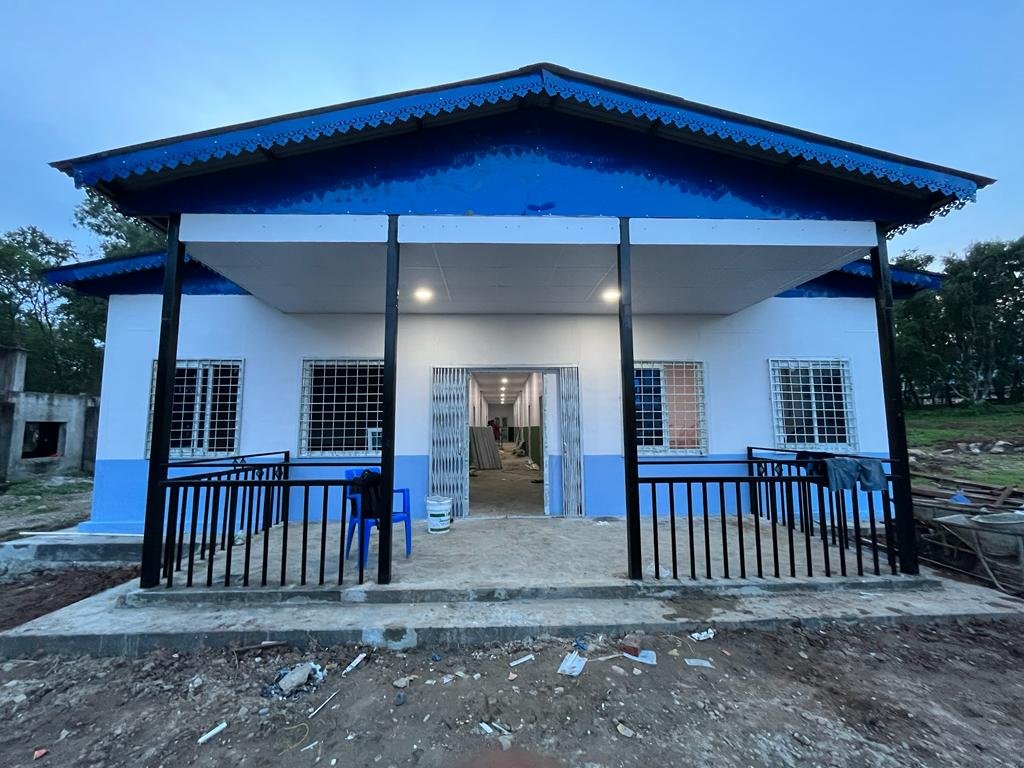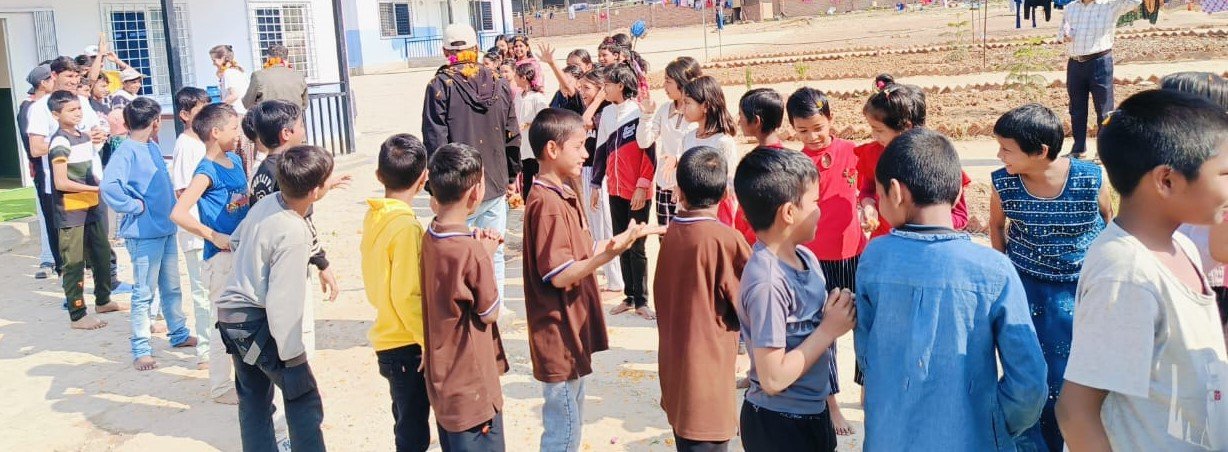STRATEGIC OBJECTIVES
AN ENLIGHTENED FUTURE IS OBTAINED THROUGH AN AWAKENED SOCIETY
Livelihood and sustainable income
Quality education and competative human resource
Human rights, good governance and inclusive democracy
Leadership development and institutional strengthening
Proportional representation and mainstreaming
THEMATIC AREAS
EMPOWERED PEOPLE AWAKENED SOCIETY
An organizational development
Child protection and promotion
Integrated community development
Inclusive quality education and employment (IQEE)
Social inclusion and mainstreaming
CHILD PROTECTION AND PROMOTION
Badi Sarokar Manch Nepal is deeply committed to safeguarding the rights and well-being of children across Nepal. BSMN’s Child Protection program addresses critical issues such as child labor, child trafficking, child abuse, and various forms of violations and discrimination that children face in Nepalese communities. BSMN advocates for and work towards creating a protective environment where every child can grow up safe, healthy, and empowered.
SOCIAL INCLUSION AND MAINSTREAMING
Gender, caste and ethnicity-based inequality and violence are still largely prevalent. In defacto, women in Nepal have limited access to and influence in decision making roles compared to men. Badi, Dalits and other disadvantaged and marginalized people face caste-based, gender-based and language-based discrimination. Despite the dedicated Act Relating to Rights of Persons, there is room for improvement in terms of access to information, employment, equal recognition before the law, and sign language which is critical for accessible information.


Existing biases and discrimination against women, and the most excluded and vulnerable groups of Nepal limits the growth and equitable distribution of benefits of development interventions. Despite increasingly progressive legislation, there are instances of discrimination including Badi and Dalits are restricted in terms of what they can touch, where they can enter and which sectors they can work in. Language, geographical isolation or remoteness and lack of access to education and information, limit access to development benefits and they are experienced political, economic and social exclusion. While ensuring representation and participation of women and excluded groups in leadership and decision-making at all levels and spheres of society is a goal in itself, it is also proven to significantly contribute to more equal and inclusive development outcomes across sectors. Political representation of women and excluded groups has significantly increased after the federal restructuring of Nepal in line with the Constitution of 2015.
The Constitution mandates that 40% of all elected representatives at the local level must be women, and 20% must be Dalit women. Similarly, it mandates that 33% of all elected representatives at the federal and provincial levels must be women, and provides additional representational quotas for other socially excluded groups
During the first three years of implementation, BSMN strategic plan has prioritized both GESI targeted and mainstreaming interventions in all three domain of change specifically focusing on women, the vulnerable, the excluded and the poor to (i) increase their access to services and opportunities, (ii) enhance their voices and participation, and contribute to addressing discriminatory practices, mind sets and norms and (iii) policies and that remove barriers.
INCLUSIVE QUALITY EDUCATION AND EMPLOYMENT (IQEE)
“Every child has the right to quality education and learning”
Education is more than just a basic human right – it’s a cornerstone of personal development, economic growth, and societal progress.
Inclusive quality education means that all children, regardless of physical, intellectual, social, emotional or linguistic abilities, learn and participate equally and effectively, in safety and free from gender bias. However, a range of often intersecting factors including gender, poverty, location, disability, language and ethnicity create barriers that prevent millions of children from accessing and completing quality education
Inclusive education is important because it promotes diversity, equity, and social justice. It recognizes that every student is unique and has different learning needs, and it seeks to create an environment that is responsive to those needs. Inclusive education also helps to build a sense of community and belonging among students, which can lead to better academic and social outcomes.
Inclusive education benefits all students, not just those with disabilities. It promotes a positive learning environment that values diversity and encourages collaboration and teamwork. It also helps to develop empathy and understanding among students, which can lead to more inclusive and accepting communities
BSMN goal is to ensure vulnerable and excluded children – particularly girls – access and complete inclusive quality education from pre-primary to higher level. This encompasses formal, non-formal and informal provision, in development and humanitarian settings, including displaced and crisis-affected communities.
INTEGRATED COMMUNITY DEVELOPMENT (ICD)
Integrated community development in a community refers to a holistic approach that addresses various aspects of growth and progress simultaneously. It goes beyond isolated initiatives and instead focuses on the interconnected nature of social, economic, environmental, and cultural factors within a community. This approach aims to create synergy between different sectors, fostering sustainable development. Integrated community development involves collaboration among diverse stakeholders, including residents, local authorities, businesses, and non-profit organizations, to collectively identify and implement strategies that enhance overall well-being. By considering the interdependence of different aspects, integrated community development seeks to create a balanced and resilient community that thrives in various dimensions, fostering long-term prosperity and improved quality of life for its members.


This approach takes a holistic approach to community development, recognizing that social, economic, and environmental factors are all interconnected. It involves working across sectors and disciplines to address the complex and interconnected challenges facing communities.
Integrated community development refers to a process that aims to improve the economic, social, cultural, and environmental well-being of a specific community or group of people. It involves a range of activities that are designed to empower and build the capacity of individuals, groups, and organizations within a community to work together to achieve common goals and objectives.
AN ORGANIZATIONAL DEVELOPMENT (OD)
Organizational development is the planned, systematic process of changing the strategies, procedures and culture of an organization to improve its performance, effectiveness and growth. Organizational development is an effort within an organization to improve its capabilities and overall effectiveness. Not a simple process or quick fix, organizational development is a structured, organized and often lengthy endeavor to bring transformational change to specific areas of an organization or all of its parts—its values, strategy, structure, people and processes—with the goal of creating a sustainable, resilient organizational culture that can adapt to change and achieve targeted goals for success, growth and profitability.

STRATEGIC APPROACHES
- Institutional Good Governance
- Human Rights-Based Development Approach
- Women and Youth for Social Transformation
- Multi-Stakeholders Partnership and Networking
- Leave No One Behind
- Comprehensive Integrated Community Development

Welcome to Badi Sarokar Manch Nepal (BSMN), a beacon of hope and change in the heart of Karnali Province.